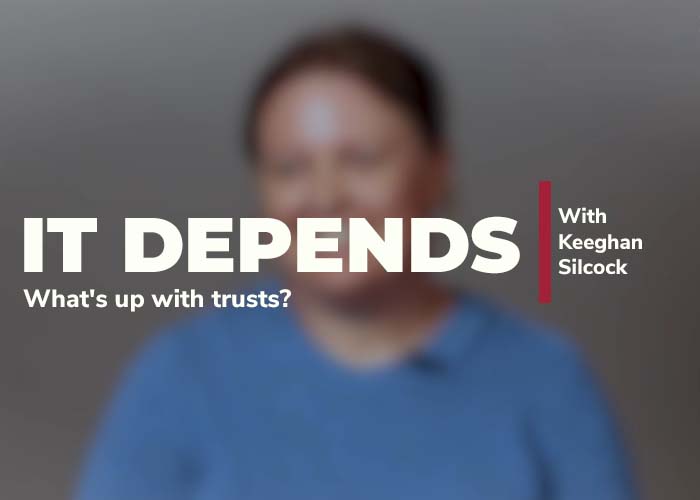In this edition of ‘It depends’, associate Sacha Robinson talks about common provisions in trust deeds that cause practical problems.
Sacha will be presenting on this topic at our Annual Adviser Conference on 23 and 24 March 2023. Register now to attend in person or online.
Video transcript
Welcome to the latest edition of It Depends. Today, we will be talking about common provisions in trust deeds that cause practical problems.
What are some of the provisions that can cause practical problems?
There are a number of weird and wonderful trust deed provisions that we come across that can cause practical problems. Some of the types of provisions to look out for include notice requirements, such as notice requirements for retiring trustees and the appointment of new trustees. Whether there are any consent requirements and who is required to give consent. Are there any provisions automatically appointing or removing parties on certain events. Whether the trust deed allows you to extend the vesting date. And finally, how the beneficiaries of the trust are determined, and in particular how the default beneficiaries of the trust are determined.
What are the consequences?
It depends. Some of the practical problems we have come across with these types of clauses include where a client has not followed the specific provisions of the trust deed and whatever action they have undertaken, such as removing a trustee or appointing a new trustee has not been doing in accordance with the deed and the consequences of that. Where a provision has a completely unintended consequence that a client may not even be aware of, such as with automatic appointment and removal provisions. Where we are actually unable to do what the client would like to do because of the trust deed or there may be significant tax or duty consequences as a result of the specific provision.
What do I do next?
It depends. Sometimes you can amend the offending provision or work with them. However, depending on the terms of the trust deed, this may not be possible. I will be covering the topic of common provisions in trust deeds that can cause practical problems in much more detail at our Annual Adviser Conference on the 23rd and 24th of March. So, if you would like to come along and hear more about this topic and many other great topics, please come along.







